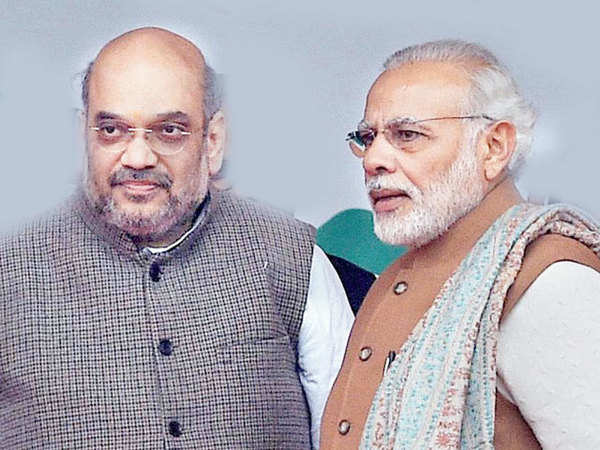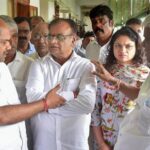Uttar Pradesh’s political waters are calm, for now. Or, perhaps, that is just how it seems, as no grand alliances have been formed, no active partnerships sought, and there has been no getting together of likeminded parties.
The 2024 elections are still months away. That is too long a time in normally turbulent politics of the state. No party will be first to announce that it is seeking an alliance and thus appear as a needy, weak partner. Dive in a bit tough, and the start of some churn is visible.
The state’s Congress unit, for instance, is buoyed by the success in Karnataka elections and hopes to do better in the five upcoming assembly elections. “For now, our focus is on preparing to contest all 80 seats (in the Lok Sabha) elections”, said senior party leader Veerendra Madan. “There is a series of meetings on; let us see what comes out of them, but the High Command’s decision will be binding on us”.
Neither Madan nor anyone else is willing to go on record to decode how a win in the state would be possible without an alliance that brings together the anti-BJP vote. Especially as a large chunk of the upper-caste vote— once given for the Congress— has long since been swept into the BJP’s rising tide.
While the BJP polled 48.98 per cent of votes in 2019 Lok Sabha elections (a rise of more than 7 per cent from the previous election), the other principal contenders — the BSP and the Samajwadi Party—had combined vote share of slightly over 37 per cent. For the Congress, that figure was slightly over 6 per cent. So, even all three together could not mop up all the anti-BJP vote. Divided, they stand an even poorer chance.
The rationale that works for the Congress is that for its failures (and its solitary seat in the 2019 Uttar Pradesh Lok Sabha elections) it remains a national party with its, or alliance, governments in seven states. Thus, at the national level, it remains the only force that can take on the BJP.
But there are many things that do not work for the Congress in the state. For one, it lacks credible candidates. In 2017, the year, that the Congress fought elections in an alliance with Samajwadi party and put up candidates in 114 seats, it won just seven. However, the fall in its vote share was lower than its partner had to face. An irate Akhlesh Yadav would later, in run up to the 2022 assembly elections says that the Congress should focus on winning the two seats his party had left for it.
The condescension towards the Congress is not lost on anyone. But as one Congress leader had said, “We are at their lowest. We cannot go any lower. The party will sustain itself if we do poorly in 2024; but what will happen to SP’s identity? It should stop acting like a big brother.”
Abdul Hafiz Gandhi, Samajwadi Party national spokesman said the congress needed to understand that it would have to cede space to regional forces where the latter are stronger. “We are in the negotiating stage and will take the best decision for the party”, he said. “It cannot be denied that we are stronger in the state and so should get a larger chunk of the seat share.”
For all the goodwill that Rahul Gandhi’s constant visibility has generated, the state unit seems to be stuck in a dangerous inertia. This was on display in recent municipal elections ( which admittedly are no barometer of state or national politics). Its own candidates had woes that touched upon the lack of the party’s seriousness. “Candidates were left completely on their own. The party did even spend on banners or flags,” said one defeated contender. Yet, to the party’s own surprise, it won 18 seats and also polled an impressive number of votes in a handful of others to come second. So that sense of the electorate looking at the Congress may be reality, but without the party nurturing it and being combative, it will die.
The BSP, as always, is weirdest of all, with even its spokespersons now avoiding questions. One said “Behenji” will open her cards by December.” In a recent party meeting in Delhi, Mayawati’s focus was on sector committees, which took after a certain number of booths. Some organizational changes are also on so that while the party keeps promoting young talent, the more experienced ones are not left behind.(IPA Service)

 Janata Dal(S) Seeking Alliance With BJP In Karnataka To Save Its State Outfit
Janata Dal(S) Seeking Alliance With BJP In Karnataka To Save Its State Outfit 